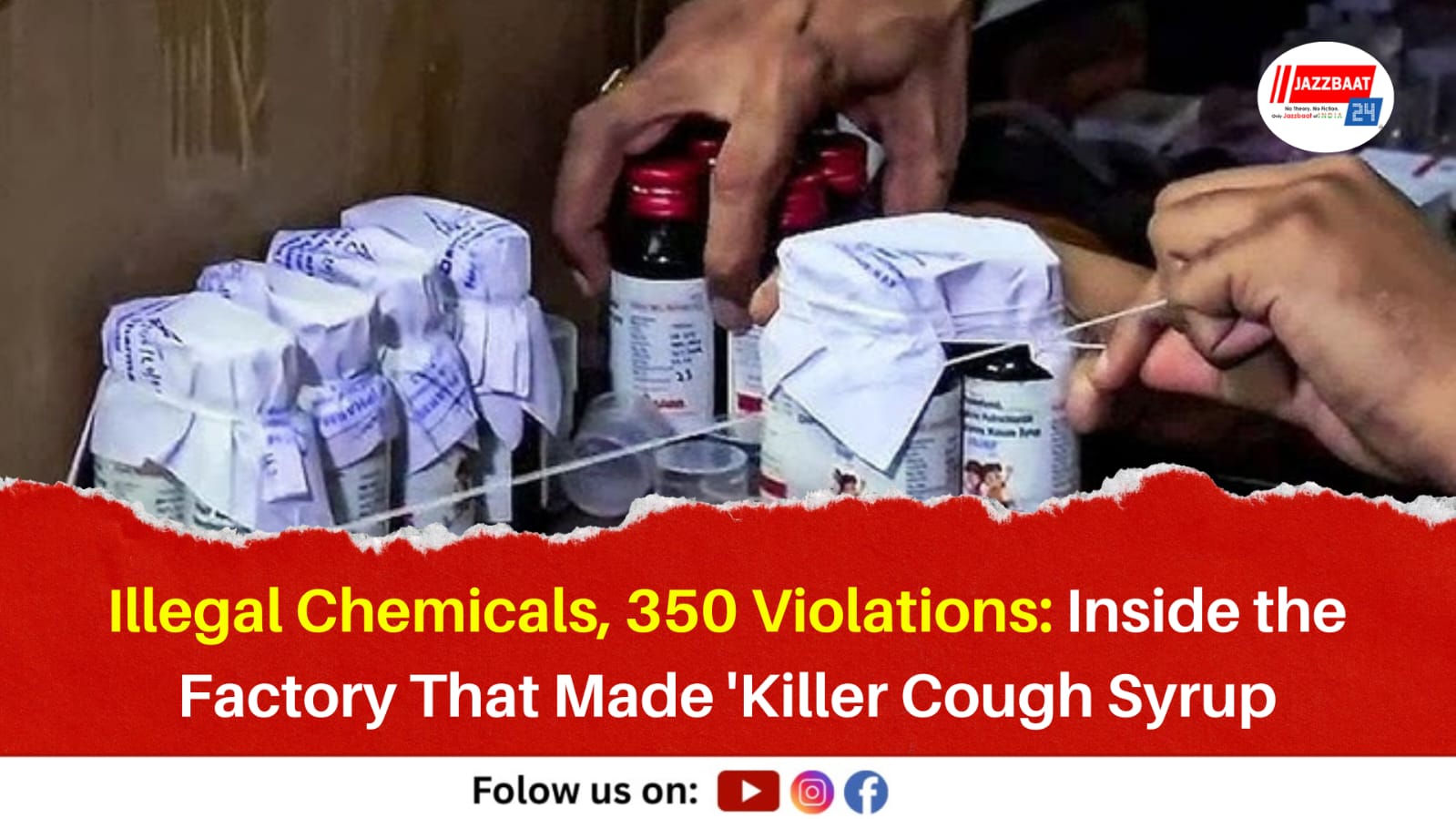Alarming infractions at Sresan Pharmaceutical, the Kancheepuram-based company that makes the cough syrup Coldrif, which has been connected to the deaths of two children in Rajasthan and fourteen in Madhya Pradesh, have been discovered during a government inspection. More than 350 manufacturing process errors were found in a 26-page report from the Tamil Nadu Drugs Control Department that India Today TV exclusively obtained, raising grave concerns about safety and hygienic standards. The factory was found to be operating in unclean conditions, with rusted machinery, inadequate ventilation, and non-functional air filters. According to the report, the layout and design of the plant further raised the risks of contamination. According to reports, Coldrif syrup was kept in hallways and spaces without air handling units (AHUs), exposing the goods to dust and cross-contamination.
Officials classified the infractions as "critical" and "major," citing the company's deficiency in essential facilities, trained personnel, and appropriate safety protocols. No authorized staff had been assigned to supervise batch releases, and there was no Quality Assurance (QA) department. There were no standard operating procedures (SOPs) in place for handling product recalls or quality failures. Additionally, the business did not supply gowning procedures, pest control measures, cleaning mechanisms, purified water systems, or drains that complied with GMP. The illegal use of non-pharma grade chemicals in Coldrif syrup, which puts consumers at serious risk, was also disclosed in the report. Inspectors emphasized that patients, particularly children, were at risk of toxic exposure due to the lack of QA oversight and regular quality checks.
This investigation reveals gaps in the company's monitoring and enforcement of pharmaceutical manufacturing standards, underscoring a systemic failure in regulatory compliance. To ensure accountability and stop more tragedies, authorities have warned that strict action is necessary. Concerns about the safety of over-the-counter medications have been raised nationwide by the Coldrif case, which has prompted calls for tighter regulation of pharmaceutical manufacturing practices in India as the families of the impacted children pursue justice.
